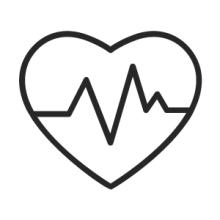Technology-Enabled Care (TEC) describes a set of services supported by various devices. We used TEC to support people to live more independently.
Some examples are:
- fall detection - devices that automatically alert a carer, family or an alarm receiving centre if you fall or have an accident
- medication management - apps and devices that send medication reminders and even dispense doses, ensuring you take your medications as prescribed
- wearable devices - smartwatches and GPS trackers
- smart home technology - devices like smart thermostats, lights, and voice-activated assistants can make it easier to control your environment if you have mobility issues
- remote monitoring – sensors that track activity, vital signs and health information, sending data to nominated people in real-time, allowing for a proactive approach rather than reacting to an event
- social connection - video calls and social media help combat social isolation, allowing you to maintain social connections and reduce feelings of loneliness
- access to information and services - the Internet and mobile apps provide access to information, shopping, banking, and a wide range of services without leaving home
- assistive technology - specialised TEC devices like screen readers, voice-activated software, and adaptive keyboards can help people with disabilities to use computers and smartphones
- cognitive support - TEC can help people with cognitive impairments through reminders, scheduling, and memory aids
TEC helps people by offering more control over their health, environment, and daily activities. They help promote independence and enhance your quality of life.
